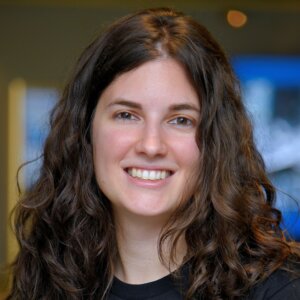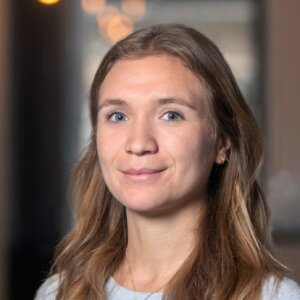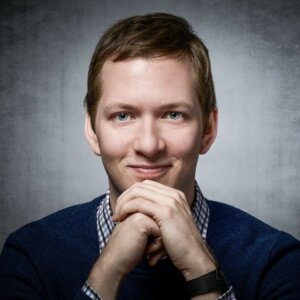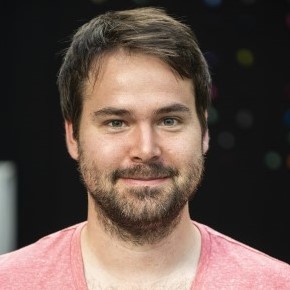Abstracts of invited speakers
 Alba Cervera Lierta – Noisy Intermediate-Scale Quantum algorithms
Alba Cervera Lierta – Noisy Intermediate-Scale Quantum algorithms
[slides] [recording]
A universal fault-tolerant quantum computer that can solve efficiently problems such as integer factorization and unstructured database search requires millions of qubits with low error rates and long coherence times. While the experimental advancement towards realizing such devices will potentially take decades of research, noisy intermediate-scale quantum (NISQ) computers already exist. These computers are composed of hundreds of noisy qubits, i.e. qubits that are not error-corrected, and therefore perform imperfect operations in a limited coherence time. In the search for quantum advantage with these devices, algorithms have been proposed for applications in various disciplines spanning physics, machine learning, quantum chemistry, and combinatorial optimization. The goal of such algorithms is to leverage the limited available resources to perform classically challenging tasks. In this talk, I provide an overview of NISQ computational paradigms and algorithms, discussing the key structure of these algorithms, their limitations, and potential advantages.
 Vedran Dunjko – Quantum-enhanced Reinforcement Learning (with practical part covered by Sofiène Jerbi)
Vedran Dunjko – Quantum-enhanced Reinforcement Learning (with practical part covered by Sofiène Jerbi)
[slides] [recording]
Quantum machine learning (QML) based around parametrized quantum circuits has been hailed as one of the potential quantum killer apps, perhaps even with near-term quantum computers. Much research has been dedicated to the investigations of such QML for supervised learning (classification), and generative learning (e.g. generating images) paradigms. In this lecture, we will discuss how these parametrized quantum circuit architectures can be used to quantum-enhance the third main branch of machine learning – reinforcement learning (RL). RL is arguably closest to AI, and which is at the core of the celebrated AlphaGo results.
The lecture will end with a 25 min tutorial by Sofiène Jerbi, showing how one can easily program quantum RL agents in Python using some of the libraries we have helped develop.
 Marylou Gabrié – Statistical mechanics of learning: the physicist’s view on learning theory
Marylou Gabrié – Statistical mechanics of learning: the physicist’s view on learning theory
[slides] [recording]
TBA
 Evert van Nieuwenburg – Reinforcement learning and evolutionary strategies for quantum error correction
Evert van Nieuwenburg – Reinforcement learning and evolutionary strategies for quantum error correction
[slides] [recording]
Learning algorithms may provide a unique advantage for near term quantum devices by adapting to experimental imperfections. In this talk I will mostly discuss reinforcement learning agents that learn to solve the decoding problem on stabiliser codes. I will explain how the decoding problem in such codes works, and how it can be turned into a (single player) game amenable to a reinforcement learning solution. If time permits, I will also discuss other machine learning (but non-reinforcement learning) approaches to this problem.
 Adrian E. Roitberg – TBA
Adrian E. Roitberg – TBA
[slides] [recording]
TBA
 Lei Wang – Two lessons from deep learning
Lei Wang – Two lessons from deep learning
[slides] [recording]
1) Differentiable programming: one composes differentiable components into a computer program, then tunes its parameters via gradient optimization.
2) Representation learning: one thinks of neural networks for transforming the representation of data, rather than fitting.
I will explain these two lessons with examples from many-body physics.
 Sebastian Wetzel – Interpreting neural networks in the field of theoretical physics
Sebastian Wetzel – Interpreting neural networks in the field of theoretical physics
[slides] [recording]
TBA
